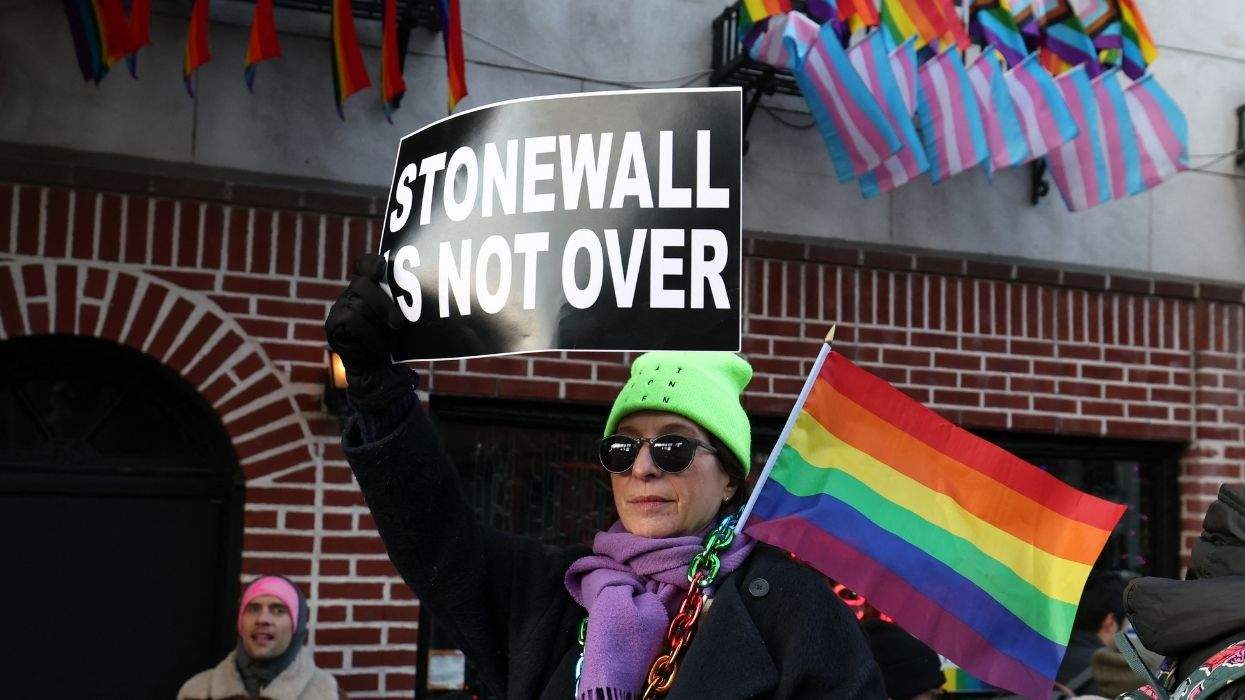Do you remember opening your first bank account? Suddenly, you could make money just by saving it!
In introductory finance, schools teach "the compounding effect of interest." It is an important lesson meant to teach students that money -- specifically individual savings -- grows because of interest. You save $1, and over the year because of interest, that becomes $1.05. And, if you leave that $1.05 in the bank, you get interest on that amount, and it becomes $1.63 in 10 years.
Here's the problem with that math: Women are only making 78 cents for every dollar that a man makes. Actually, let's be more specific: White women are making 78 cents. African-American women are making 64 cents, and Latina women are making 54 cents for every dollar earned by a white man. That's not just a problem paycheck to paycheck; that adds up to fewer savings and therefore less interest earned by women and their families over a lifetime. Saving for a better future is a lot harder when a woman needs every penny she earns just to meet basic living expenses for herself or her family.
This "wage gap" took central stage in the state of New Jersey last week. Republican Gov. Chris Christie vetoed his state's pay equity bill, claiming that the bill was "nonsensical." His veto specifically mentioned that pay equity would make New Jersey "very business-unfriendly."
This ridiculous argument overlooks a fundamental fact: When women earn more, they can afford to put more money back into the economy, buying from businesses that then create more jobs to create more goods, thereby creating a healthy and vibrant economy. Laws comparable to the one proposed in New Jersey are already in effect in Minnesota and, recently, California. Twenty other states developed similar standards in the 1980s with success. In these cases, business has not only persevered, it's actually grown stronger.
What Gov. Christie has done with this veto is proved how unfriendly and unconcerned he is about the women of New Jersey. Naturally, this veto came in the same week that his good friend and presumed GOP presidential nominee Donald Trump claimed Hillary Clinton is "playing the woman card." Christie's veto and Trump's ongoing, unapologetic misogyny make it clear that the GOP front-runner and his buddies have no interest in sitting down at the card table with us.
The implications of this rejection, especially for lesbian and queer families, are dire. Allow me to put Christie's veto into context: At one end of a street in Cherry Hill, N.J., lives a gay couple. Both men work, and both earn their full paycheck. Their next-door neighbors, an opposite-sex couple, both work. But their combined income will be slightly less than that of the two men, as the woman will make less at her job. Now, think about the lesbian couple that lives on that block. They are going to be making less than either their gay or opposite-sex couple neighbors. It's a simple equation, whether in Cherry Hill or any other community: Women being paid less than men for the work they do disproportionately affects lesbian and queer women and our families.
This isn't the first time Christie has vetoed a bill that sought to lift up women. He vetoed his state legislature's passage of marriage equality in February 2012. He has vetoed funding for Planned Parenthood -- a critical health care provider to women in his state -- five times. Twice now, he has vetoed bills that sought to make it easier for transgender people -- including trans women, who are even more vulnerable to the economic impact of discrimination -- to obtain legal identification that matches their authentic gender. Then he laughed about those vetoes. He has previously vetoed equal pay bills with similar provisions to the one he nixed this month.
Gov. Christie, like so many in his party -- including Trump, who appears to be the new standard-bearer -- repeatedly demonstrates his true disdain for women and working families. Their actions make it clear that they favor big business and the traditional white male patriarchy over women -- even in an election year that features a woman running to become president of the United States and an electorate with a growing base of young, diverse women-identified voters.
Even if Christie, Trump, and other politicians don't buy the economic argument, there is still one last compelling reason to pursue pay equity -- because it is the right thing to do. We are a nation that values equality of opportunity and fair treatment. We have fought for gender equality under the simple recognition that women and men are equal and deserve the same rights regardless of gender. And, that should be enough to motivate Christie or any policy-maker to search out solutions that bring about greater equality in all they do.
Alas, that ideal is far from realized today. Despite being better educated than men, we still earn less. We are less represented in the boardroom, in city halls and state houses, and in Congress. And, until now we've never had a realistic shot at leading the great country we helped make great. Imagine what it could mean, symbolically and practically, to have a woman in the White House who has challenged systemic discrimination and fought for women and families her entire career.
Consider the two leading candidates for president: Donald Trump -- great friend of Chris Christie and established chauvinist; or Hillary Clinton -- perhaps the most qualified candidate for president in my lifetime, and a woman who has been a proven champion for working families, women, and the LGBT community. This election matters for pay equity, for women, and especially for those of us who are LGBT women with families.
















Charlie Kirk DID say stoning gay people was the 'perfect law' — and these other heinous quotes
These are some of his worst comments about LGBTQ+ people made by Charlie Kirk.